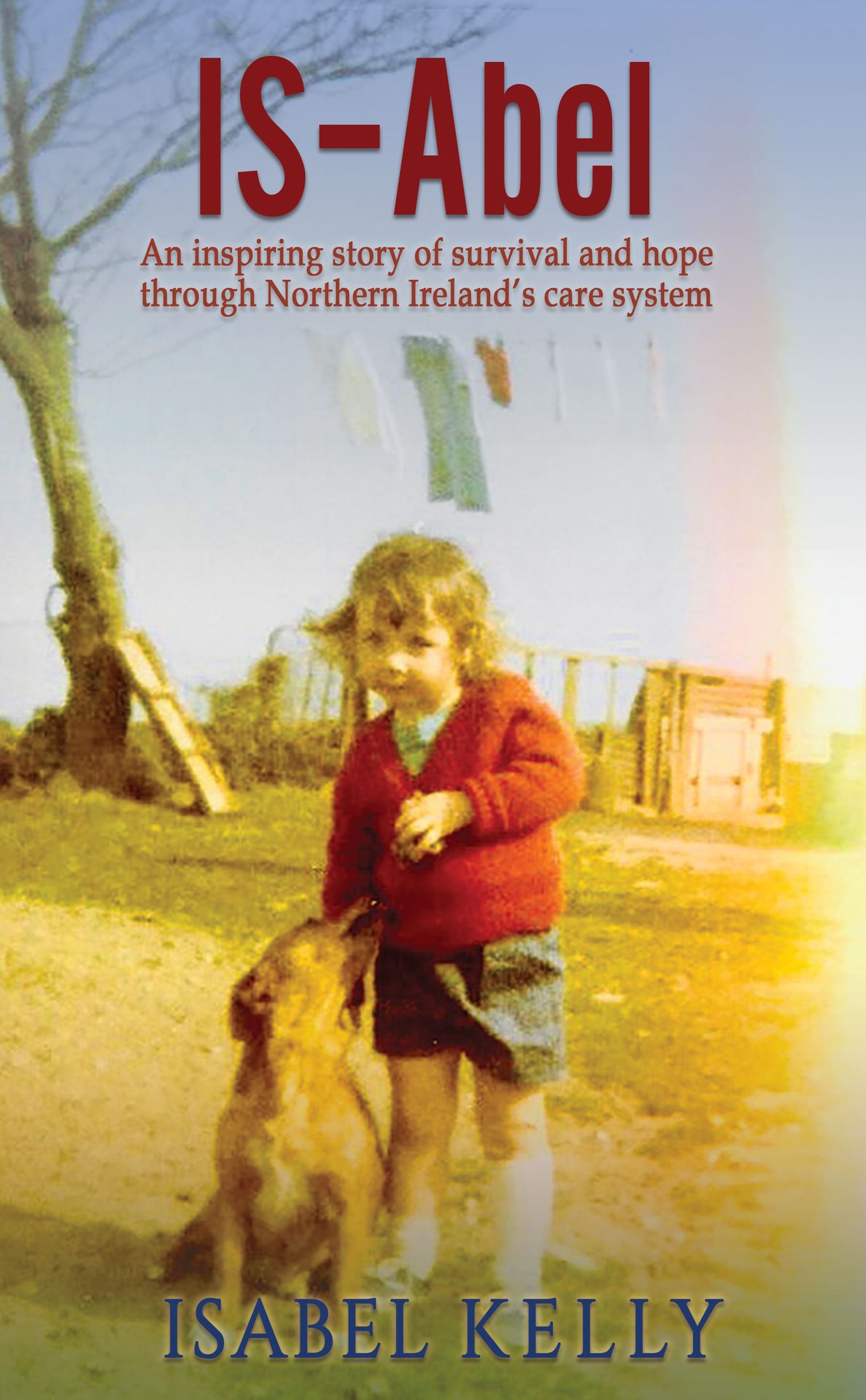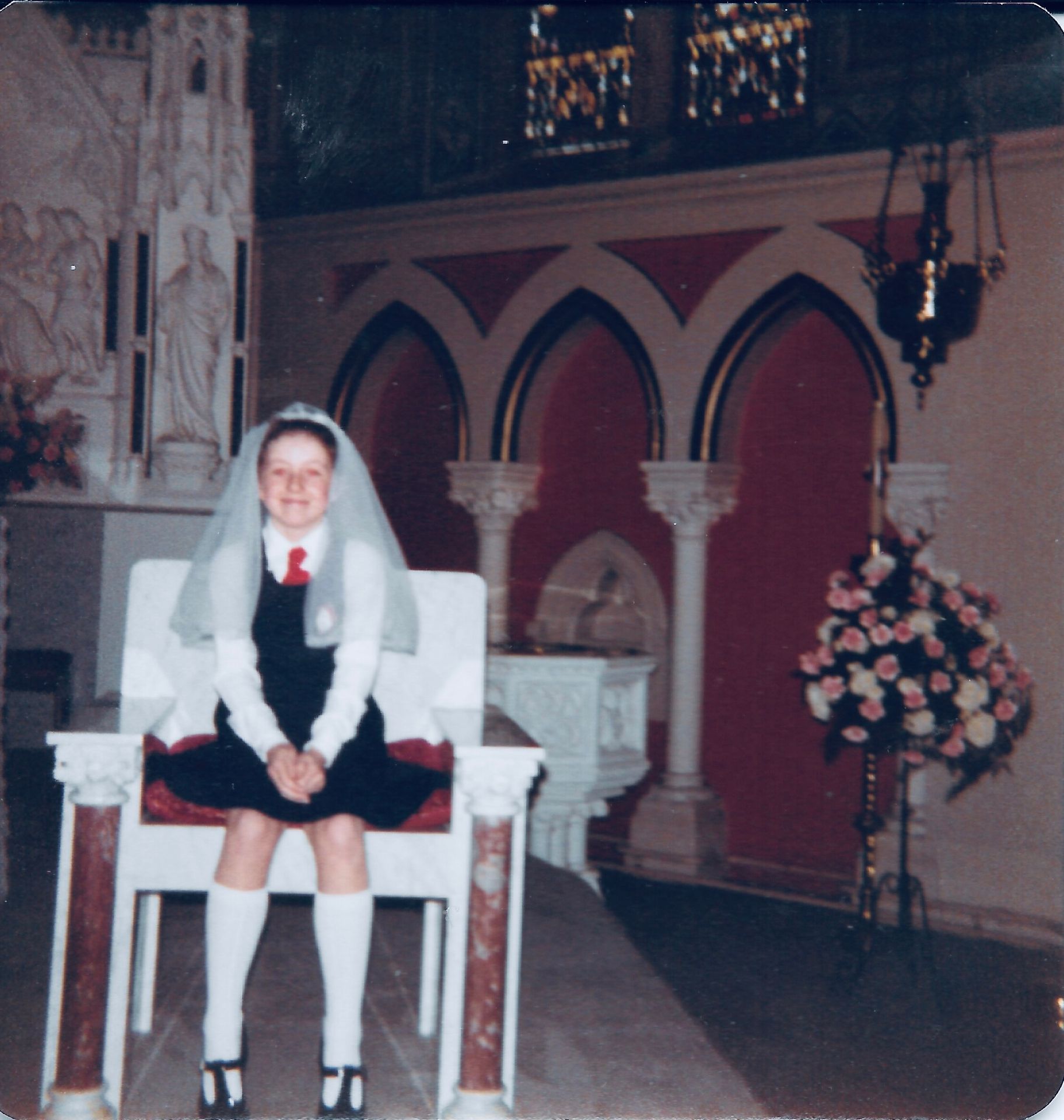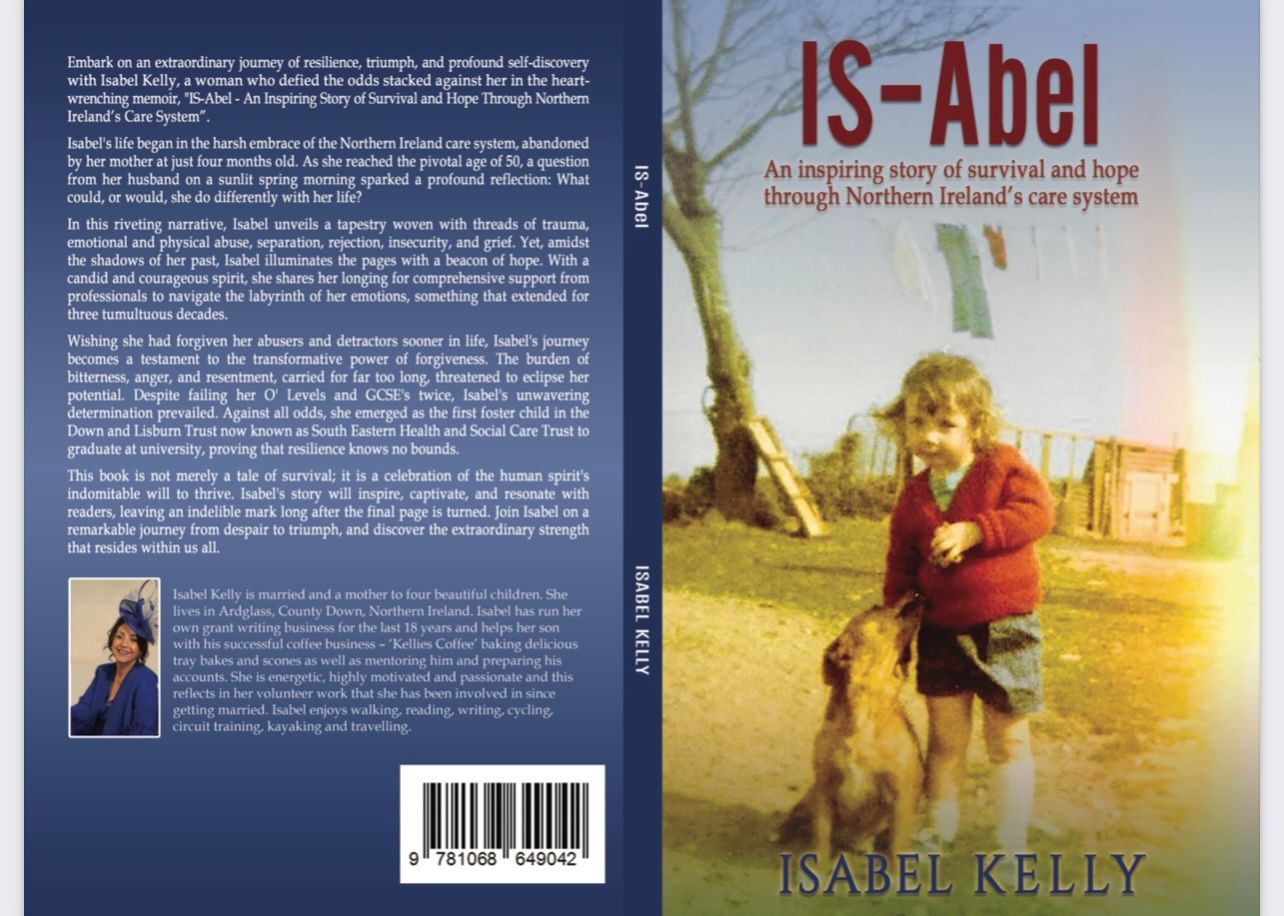IS-Abel - An Inspiring Story of Survival and Hope Through Northern Ireland’s Care System
HH
Coming into the weekend, let's take a deep dive into Isabel Kelly's book, 'Is-Abel'.

5 Life-Altering Truths from a Memoir Forged in the Care System
What if the name you’ve cherished your entire life, the one link to a family you never knew, was a lie? Not a malicious lie, but a clerical error, a casual oversight in a file that unravels your entire sense of self? This is not a hypothetical question. For Isabel Kelly, it was the first of many lessons in a life where identity is a constant battle against a system that often prioritises procedure over personhood.
Her memoir, 'IS-Abel - An Inspiring Story of Survival and Hope Through Northern Ireland’s Care System,' is a profound exploration of this very quest. Her story is not just one of survival against a backdrop of trauma, but a source of powerful, counter-intuitive lessons about the human spirit. It pulls back the curtain on the care experience, revealing how a system designed to protect can inadvertently erase, separate, and stigmatise the very children it’s meant to serve.
This post shares five of the most impactful takeaways from her journey. These are not just anecdotes from a difficult past; they are profound insights into how a life is shaped, how the heart forms bonds in the most unlikely of places, and how true strength is often forged in the fight to prove you are more than a label.
1. A Single Misspelled Word Can Undermine a Lifetime of Identity
For most of her life, Isabel Kelly knew herself as “Isobel.” It was the name given to her by the system, the name on her school records. She cherished it as the one thread connecting her to the biological family she never knew, particularly to her grandmother and great-grandmother, who were named Isobella. The discovery, years later upon receiving her first passport, that her birth certificate actually read “Isabel” triggered a profound identity crisis.
This was not just a clerical error; it was a fundamental severance from her roots. The misspelling severed the only generational link she had, stripping her of the one thing she thought was truly hers. In a letter investigating the error, the Sisters of Nazareth revealed the systemic carelessness that led to this lifelong wound:
It must have been distressing to find the variation in forenames Isabel/Isobel. Again, I’m afraid this is a constant problem for us using the archives. I suspect often children were received without written paperwork accompanying them. Perhaps being ‘handed over’ by someone unrelated to the child who could only give the name verbally, resulting in phonetic recording.
This wasn't just a typo; it was the system's first, and most intimate, act of erasure. A theme that would repeat in the separation from her siblings and the societal labels she was forced to fight. It serves as a stark reminder that within large, impersonal systems, a single stroke of a pen can alter an individual's sense of self and their place in the world.

2. We Can Form Powerful Attachments to the Sources of Our Pain
One of the most unsettling revelations in Isabel’s story is the complex bond she maintained with the Mother Superior, a woman who ran the “harsh and cruel environment” of the children’s home. Despite the trauma she endured there, Isabel found herself inexplicably drawn back to visit her for years, well into her adulthood. This psychological portrait is made more complex by the fact that the Mother Superior welcomed her warmly, taking great interest in her life and reminiscing about the “‘good aul days’”.
This counter-intuitive pull speaks to the deep psychological need for attachment, even in the most damaging circumstances. Isabel's own words capture the complexity of this connection:
Despite the trauma I endured at the children’s home, when I reached adulthood, I returned many times over the years to visit the Mother Superior. I was inexplicably drawn back to visit this woman, this surrogate mother, an attachment that I had formed that could not easily be shaken off.
Her story reveals a difficult truth about trauma bonding: for a child with no one else, the figure of authority, even an abusive one, can become a surrogate parent. This creates a powerful emotional connection that survival instincts refuse to let go of, illustrating a psychological dissonance that defies simple logic.
3. The System Can Make Siblings Strangers Under the Same Roof
Imagine growing up in an institution, separated from your parents, only to discover years later that your own brother and sister were living in the very same building the entire time. This was the shocking reality for Isabel. At St Joseph's baby home, she was systematically separated from her siblings, not for any reason related to their well-being, but for the administrative convenience of the nuns.
The cruelty of this separation was compounded by the fact that she wasn't even aware of their existence. The truth only came to light when a worker, planning Isabel’s second birthday party, casually asked if her brother and sister were invited. The reason for this profound and unnecessary loss was brutally simple: it was done to make it easier for the nuns to "manage their workload."
In a powerful contrast to this institutional cruelty, a small act of humanity followed the discovery. The worker who had learned of the siblings told her father, who “insisted that they too join me on weekends at their home.” It was a moment of grace in a system that so often prioritized efficiency over the most fundamental of human needs. By treating children as tasks to be managed, the institution created a wound of separation that never needed to exist.

4. The Heaviest Burden Is Proving You Are Not a Stereotype
For Isabel, the fight for her future didn't end when she left the children's home; it simply moved to a new battlefield: society's prejudices. Being labeled a "foster child" came with a heavy set of misconceptions; that children from care are "bad kids," "delinquent," or "damaged goods." This forced upon her an immense and draining emotional burden: the need to constantly prove her worth to a prejudiced world.
This wasn't an abstract struggle; it was a daily, visceral reality. She despised the inevitable questions about her surname, which was different from her foster family’s. She admits, “I would lie through my teeth but get caught out, anyway. Triggered by all the uncomfortable questioning, my body would tremble in fear, worried that people would know my secret.” Her frustration and the injustice of this expectation are captured in this powerful reflection from her memoir:
Let me unveil a truth: children in foster care should not bear the responsibility of constantly having to ‘prove their worth’. It is a societal lens that distorts reality, casting shadows on the potential, resilience, and untapped brilliance within each of us.
This highlights the exhausting emotional labor placed on children who, through no fault of their own, are forced to spend their energy justifying their very existence and potential. They are not just surviving their past; they are fighting a daily battle against a future that society has already tried to write for them.
5. Forgiveness Isn't Condoning the Hurt; It's Releasing the Burden
For decades, Isabel carried the weight of bitterness, anger, and resentment for the abuse she suffered; a burden that, in her words, “threatened to eclipse her potential.” The turning point in her journey was not a change of heart about the injustices she endured, but a conscious decision she made for her own well-being. Prompted by a pastor's advice, she came to a profound realisation about the nature of forgiveness.
She understood that forgiveness was not about excusing her offenders or minimising her pain. It was a tool to free herself. It was a way to release the control that those who had hurt her still held over her life. By forgiving, she was not condoning their actions but releasing herself from the heavy burden of the past so that she could finally move forward and reclaim her future.
This is perhaps one of the most transformative lessons from her story. As she concludes, she wished she had forgiven people "much earlier than I did." Forgiveness, in its truest sense, is an act of self-preservation. A final, powerful step in reclaiming one's own life from the shadows of trauma.

The Strength That Remains
Isabel Kelly's story is a raw and unfiltered look at the failings of a system and the deep scars it can leave. The misspelling of her name, the separation from her siblings, and the societal stigma she faced were all symptoms of an institutional logic that too often erases individuality for administrative ease. But woven through the pain are even more powerful threads of resilience, hope, and the indomitable will to define one's own life. The five lessons shared here are a testament to a spirit that refused to be broken by circumstance, stereotype, or trauma.
Isabel's story is a powerful testament to finding one's own voice after it has been silenced.
What is our collective responsibility to ensure every child in care has the chance to be heard?
-Harry Hickey, October 2025.
*Isabel's book is available for purchase on Amazon.